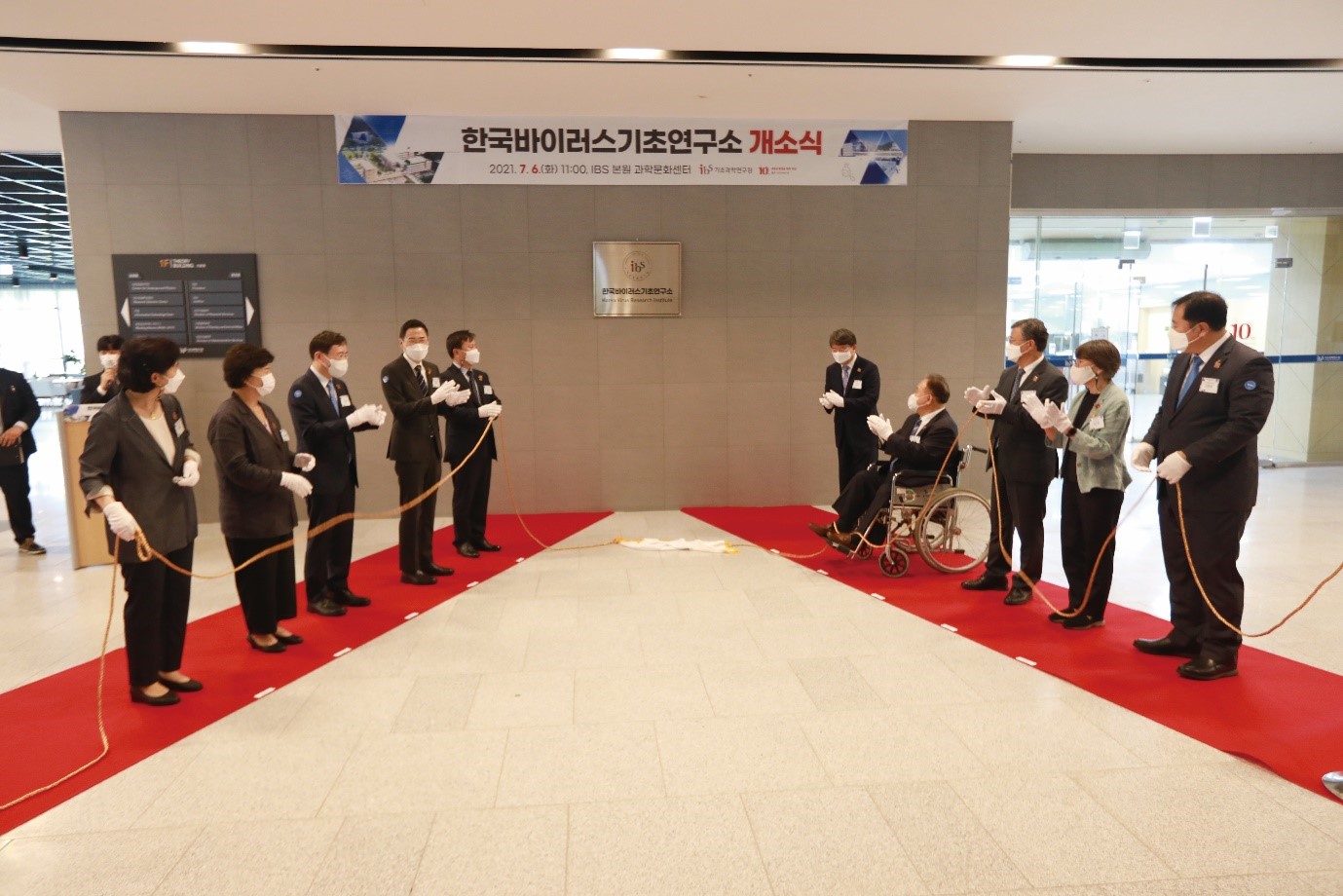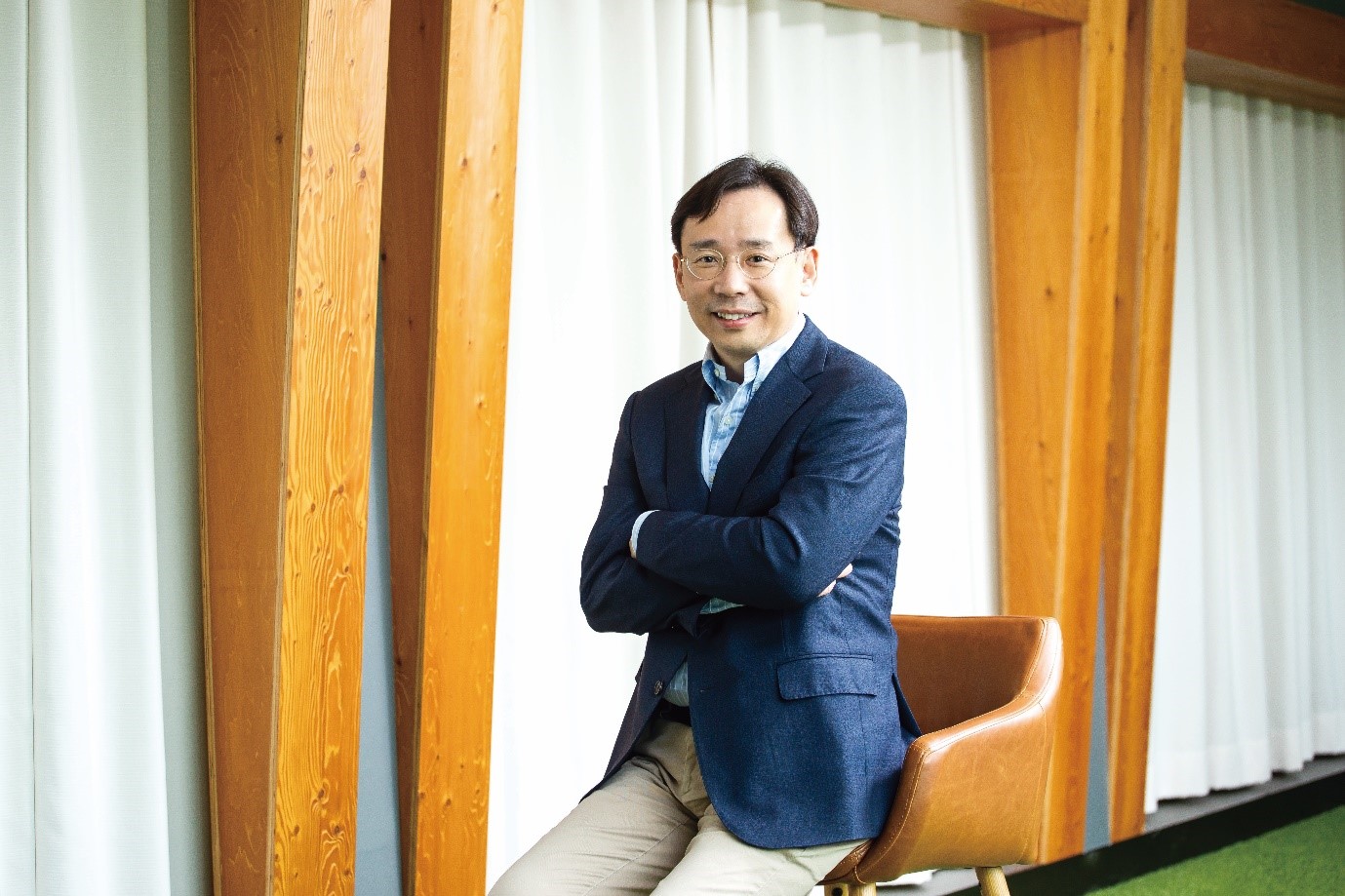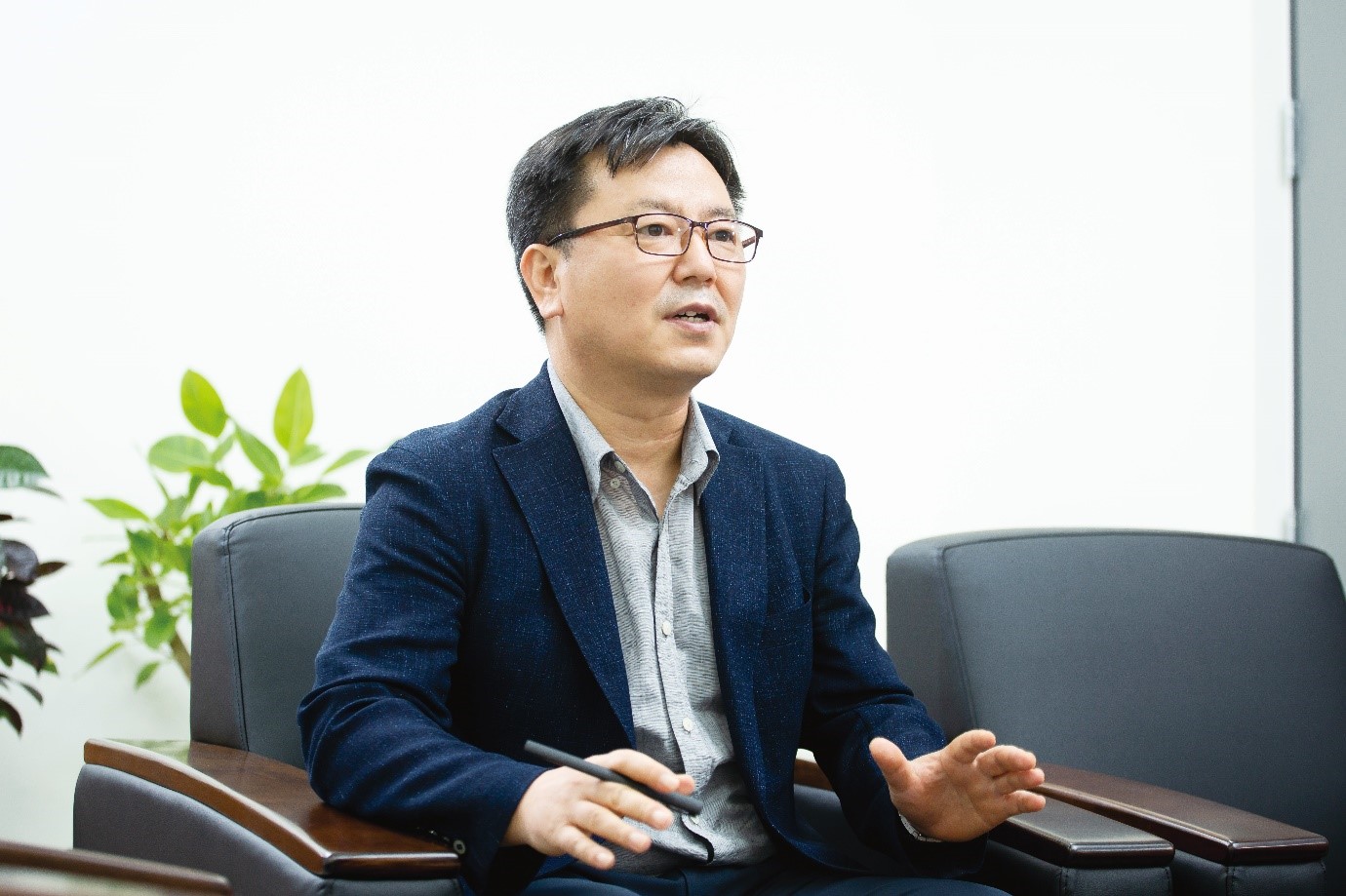주메뉴
- About IBS 연구원소개
-
Research Centers
연구단소개
- Research Outcomes
- Mathematics
- Physics
- Center for Theoretical Physics of the Universe(Particle Theory and Cosmology Group)
- Center for Theoretical Physics of the Universe(Cosmology, Gravity and Astroparticle Physics Group)
- Center for Exotic Nuclear Studies
- Center for Artificial Low Dimensional Electronic Systems
- Center for Underground Physics
- Center for Axion and Precision Physics Research
- Center for Theoretical Physics of Complex Systems
- Center for Quantum Nanoscience
- Center for Van der Waals Quantum Solids
- Chemistry
- Life Sciences
- Earth Science
- Interdisciplinary
- Institutes
- Korea Virus Research Institute
- News Center 뉴스 센터
- Career 인재초빙
- Living in Korea IBS School-UST
- IBS School 윤리경영


주메뉴
- About IBS
-
Research Centers
- Research Outcomes
- Mathematics
- Physics
- Center for Theoretical Physics of the Universe(Particle Theory and Cosmology Group)
- Center for Theoretical Physics of the Universe(Cosmology, Gravity and Astroparticle Physics Group)
- Center for Exotic Nuclear Studies
- Center for Artificial Low Dimensional Electronic Systems
- Center for Underground Physics
- Center for Axion and Precision Physics Research
- Center for Theoretical Physics of Complex Systems
- Center for Quantum Nanoscience
- Center for Van der Waals Quantum Solids
- Chemistry
- Life Sciences
- Earth Science
- Interdisciplinary
- Institutes
- Korea Virus Research Institute
- News Center
- Career
- Living in Korea
- IBS School
News Center
| Title | Scientists who fight against the virus | ||||
|---|---|---|---|---|---|
| Name | 전체관리자 | Registration Date | 2022-07-29 | Hits | 612 |
| att. |
 thumb.png
thumb.png
|
||||
Scientists who fight against the virusFighting against unseen invaders
‘Virus’. The word became popular in the press after the first reports of COVID-19 in 2019. In a world where human health is being threatened by the virus, IBS launched ‘Korea Virus Research Institute’ to establish core research capabilities to combat viruses and contribute to the national security against infectious diseases. An entity possessing genetic material such as DNA or RNA often considered a living orgasm, but in fact is not due to its inability to survive on its own. What is this mysterious, unpleasant ‘entity’? This ‘entity’ here piggybacks on other organisms, using them as its host for propagating itself. Like living organisms, it is capable of evolving and delivering genetic material, but it is not a living organism in the sense that it doesn’t have ‘organs’ that enable it to carry out these processes by itself. While this mysterious entity continues to rage across the world, threatening the existence of humanity and leaving scientists scrambling to find out where it came from, we interviewed CHOI Young Ki, Director of the Korea Virus Research Institute (and also Director of the Center for Study of Emerging and Re-emerging Viruses) and SHIN Eui-Cheol, Director of the Center for Viral Immunology, at the IBS headquarters in Daejeon to find out more. Virus, we all know what it is but have a hard time describingNow, the word ‘virus’ is on everyone’s lips, but if you ask someone “so, what is a virus?” very few can give a clear answer. The textbook definition of a virus is as follows. “A quasi microorganism that lives off living cells and can replicate only inside living cells such as in animals, plants, and bacteria. Measuring 20 to 400 mm in size, it can be a pathogen. It typically consists of a nucleic acid molecule in a protein coat, with a strong affinity for the somatic cells of organisms.” That is a long-winded answer. Could there be an easier way of explaining what a virus is? History tells us that viruses first came into the picture as targets of scientific research after the tobacco mosaic virus was discovered in the late 19th century. Since then, millions of viruses have been discovered. Of them, about 500,000 are known to be fatal to human beings. Unfortunately, there’s no known way of protecting ourselves against such deadly viruses in advance. “We can count on one hand the viruses we human beings have been able to wipe out completely, such as polio and smallpox. And we can fend off only a fraction of the viruses out there with vaccines. We can get vaccinated to protect against viruses such as dengue fever and the Zika virus, but there are far more viruses that we can’t protect ourselves from. For example, some viruses have high mortality rates, but they are left unresearched because they affect a small number of people and are thus less prioritized.” CHOI Young Ki, Director of the Korea Virus Research Institute, is a virus expert with a Ph.D. degree in virology. Before joining the research institute, Choi conducted a wealth of basic research on highly pathogenic viruses, working in medical and zoonotic disease labs (BSL3, BioSafety Level) at Chungbuk and other universities. In 2020, he published research that verified the infection and propagation process of COVID-19 for the first time in the world by using an animal research model (Cell Host & Microbe, 2020) he had developed. This was followed by another paper (Nature Communications, 2021) that ascertained the efficacy of a COVID-19 antibody treatment developed in Korea. “My plan at the Center for Study of Emerging and Re-emerging Viruses is to focus on viruses that have yet to emerge but are potentially deadly to human beings. The ultimate goal of my research will be to find a way that will allow viruses and human beings to coexist without harming each other.” Although most virus research at IBS is at the level of basic science, Dr. Choi’s ultimate goal is to save humanity from the threat of pandemics. This means he needs to keep an eye on research potential for practical application. Along these lines, the Center for Study of Emerging and Re-emerging Viruses plans to carry out projects aimed at identifying the processes through which mutant and zoonotic viruses make people sick and develop self-test kits and treatments for high-risk viral diseases.
War against viruses, the solution is immunity!The Korea Virus Research Institute is home to another research group, the Center for Viral Immunology, headed by Dr. SHIN Eui-Cheol. Immunity is the keyword here. This center will carry out research on immune responses to viruses and the impact of viral diseases on human bodies while building a foundation of knowledge that can help humanity defend itself against new viruses in the future. Director Shin is an immunology expert who has dedicated the past two decades of his life to investigating immune responses to hepatitis viruses. His recent research includes a publication (Science Immunology, 2020) that looked into factors triggering ‘cytokine storms’ or excessive pro-inflammatory releases in COVID-19 patients with serious symptoms and another paper (Immunity, 2021) that analyzed the characteristics of ‘memory immune responses’ in COVID-19 patients. Then, why focus on ‘emerging’ viruses? Dr. Shin used hepatitis C virus as an example to answer this question. “Back in the late 1990s and early 2000s, virology revolved around research on hepatitis C virus. Most of the fundamental theories underpinning modern virology stemmed from these efforts. Now, hepatitis C has become a treatable disease with medications that can cure patients within two months or so. When a virus is conquered, it drops off the radar in the medical community.” Of course, dwindling medical interest does not necessarily mean the virus is any less worth researching. For example, hepatitis C is now used as a model disease for various types of targeted research. Likewise, hepatitis A, one of Dr. Shin’s main research subjects, isn’t a significant disease from a medical point of view because normally it cures itself. But in his paper (Nature Immunology, 2021), Dr. Shin used this virus as a testbed to illuminate how bystander activation of T-cells can trigger random attacks on normal cells. Commenting on his plans for the research center, Dr. Shin stated that “we’ll take a one-step-at-a-time approach to unravel the mechanisms by which new and mutant viruses affect the human immune system while creating a foundation for improving immunological responses to virus infections.”
Securing research talents and establishing specific research directions are remaining big tasksThe Korea Virus Research Institute has opened with two research centers under its umbrella, with plans to add more in the years to come. “Our aim is to expand to have 100 to 120 staff on our payroll including supporting staff. Plans are underway to add one more center by the middle of next year. The new research center will specialize in researching the structure of viruses based on mathematical modeling. The three centers will be managed in such a way that they effectively support joint or merged research while avoiding overlaps in research domains and focus.” Director Choi thinks having three research centers within the institute, with at least three research groups per center, is the minimum requirement to start producing tangible results. “The first two years is actually about organizing personnel. You can’t carry out the kind of research we’re interested in on your own. Plus, we can’t cover the entire scope of virus research, which is why we’re trying to figure out where our specialties will lie.” There is already a slew of well-known virus research institutes around the world, such as the National Institute of Allergy and Infectious Diseases (US), the National Virology Centre (UK), The Peter Doherty Institute for Infection and Immunity (Australia), and Wuhan Institute of Virology (China). Will the Korea Virus Research Institute measure up to these world-class institutes? “Those are giants in virus research, with a number of groundbreaking achievements already under their belts. There has been no such institution dedicated to virus research in Korea. In that sense, this will be a new challenge.”
Dr. Choi is busy mapping out mid-and long-term plans for the center to become a leading research group in virology. In the initial stage, his focus will be on putting together a competent research team. After two or three years, with a clear vision of where the institute is going to be headed, he’ll kick things into high gear, producing research results while training future research manpower. Science and technological feats aren’t achieved overnight. Basic research is to science what foundation work is to construction. Both require a solid foundation before proceeding with the next stages. “Developing new technologies is an admirable goal. More important, however, is to nurture talent who can do the work. So, it’s highly important for us to establish alliances with globally eminent researchers and concentrate on training and producing talented researchers who can be group leaders in international organizations.”
Choi underscored the importance of recruiting and training talented people at the level of basic science to pave the way for future groundbreaking research outcomes. Dr. Shin could not agree more with Dr. Choi’s emphasis on recruiting talented researchers and nurturing future talent. He added that nurturing research manpower will be the stepping stone to becoming a global think tank. “In any country, immunology is the most fundamental field of medicine that undergirds public health care. That’s why virus research matters. Virology wasn’t a hot topic just two years back. That’s part of the reason we lack virus researchers in Korea. Yet, I believe the launch of the Korea Virus Research Institute will provide the springboard for Korea to reach a global level in virus and immunity research. On top of recruiting and training staff, the institute is gearing up to expand research facilities. Plans are underway to establish facilities for researching highly pathogenic viruses in eleven locations at the headquarters, in the Seoul metropolitan area, and in Gangwon Province.
Find something that only you can do, not something that everyone can do“We aren’t in the business of rapidly commercializing research results. Our role is to research and develop new source technologies.” Director Choi cited RNA vaccines as an example to explain why his research institute will focus on developing source technologies. Two of the COVID-19 vaccines used around the world right now are based on RNA technology that came on the scene only in the 2000s. Before that, vaccines were made from attenuated or inactivated viruses. RNA vaccines are a type of mRNA medication. In 1961, mRNA, a single-stranded RNA molecule that carries genetic information from DNA to ribosomes was discovered. Since then, researchers have experimented with different ideas of using mRNA. But it wasn’t until the 2000s that technological developments were able to deliver mRNA to target cells. In 2012, an animal study showed that an mRNA vaccine could effectively fight the flu. This trajectory of development culminated in 2020 when the technology was used to develop COVID-19 vaccines. “AstraZeneca, Pfizer, and Moderna were all made by purchasing source technologies that had already been developed by researchers. The researchers probably never imagined their technologies would be as widely used as they are today.” Dr. Shin isn’t interested in carrying out developmental research. Rather, like most other researchers in basic science, he’s keen on tackling fundamental questions such as ‘what makes people sick?’ and ‘where does this disease come from?’ “Our job is to find answers to such questions and file them away, hoping that they’ll someday be used by someone down the road. No one knows who that ‘someone’ will be. I’ll be happy just to know that my research will somehow benefit mankind.” Although the work carried out at this research institute will not directly translate into the industry, the studies that will be carried out here are essential in meeting social needs. Dr. Shin expects that this role will require him to work frequently as a liaison between researchers and industry. As a research organization, the Korea Virus Research Institute has just taken its first step forward, and the responsibility of putting it on solid ground falls on Dr. Choi and Dr. Shin as Directors of their respective research centers. Dr. Choi quoted a line from the TV drama ‘The Greatest Love’ to describe how he feels about his job at the institute. “Actor CHA Seung Won said in that drama, ‘I hope I won’t be just anybody.’ Likewise, I’m not interested in doing just anything that someone else can do. I want to find something that only this institute can do. And that goes for everyone else who will work and do research here.” Dr. Shin described his ambitions at the institute, saying he wants to do “The kind of research that overturns conventional knowledge about viruses in connection to the diseases they cause.” As a final note, he said, “The Korea Virus Research Institute will create a new paradigm for the way we understand viral diseases.” |
|||||
| Next | |
|---|---|
| before |
- Content Manager
- Public Relations Team : Suh, William Insang 042-878-8137
- Last Update 2023-11-28 14:20











 On 2021 July 6th, the Korea Virus Research Institute opening ceremony was held at the IBS Daejeon headquarters
On 2021 July 6th, the Korea Virus Research Institute opening ceremony was held at the IBS Daejeon headquarters

 COVID-19 changed not only the lives of humanity but those of scientists as well
COVID-19 changed not only the lives of humanity but those of scientists as well



